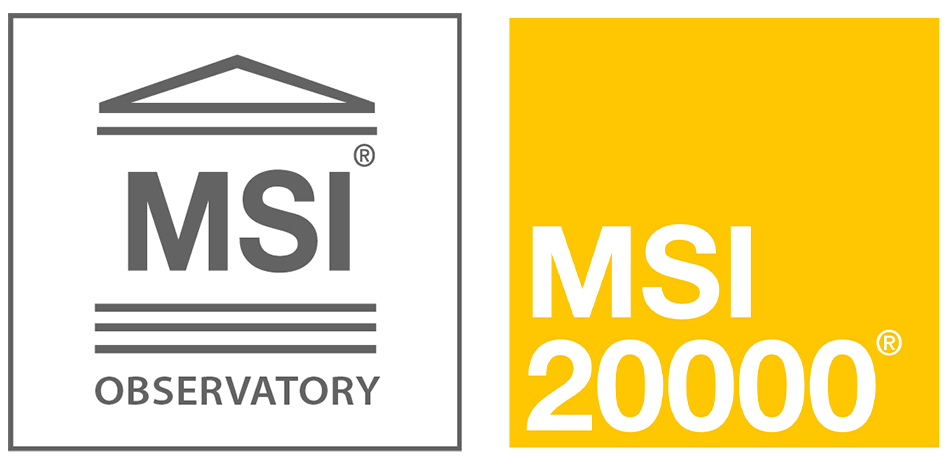
MSI 20000 pour Market Standard Indicator – Index 20000, est la norme internationale dédiée à la qualité de la situation financière des entreprises et des institutions. La norme MSI 20000, mise en place en 2008 au lendemain de la crise des Subprimes, répond aux exigences de conformité les plus rigoureuses en matière de gouvernance financière. Son cahier des charges s’articule autour de deux axes d’évaluation : solidité et performance financière ; deux composantes au cœur de la rentabilité, de la solvabilité et de la pérennité des entreprises. La conformité au à la norme MSI 20000 peut donner lieu à une certification par un organisme de certification accrédité. Ainsi, la certification MSI 20000 se présente comme un indicateur de référence pour les parties prenantes d’une entreprise, notamment les actionnaires, investisseurs, créanciers, partenaires, fournisseurs, clients etc.
LES AVANTAGES DE LA CERTIFICATION MSI 20000
Pourquoi se faire certifier ?
- Une meilleure visibilité du positionnement de l’entreprise sur la cartographie sectorielle à l’échelle internationale
- Un repère fiable et indépendant sur la situation financière d’une entreprise
- Un guide de conduite et un support d’aide à la décision en matière de stratégies financières
- Un levier de progression des bonnes pratiques en matière de gouvernance financière et de transparence
- L’engagement vers une amélioration continue de la situation financière
- Un avantage concurrentiel
- Un outil d’attractivité et de valorisation de l’activité financière pour un meilleur accès au financement et à l’investissement
- Un levier de négociation avec les parties prenantes, investisseurs, créanciers, fournisseurs, etc.


LA CERTIFICATION MSI 20000
A qui s’adresse t’elle ?
Cette certification s’adresse à tout type d’entreprise et d’institution, tous secteurs d’activités confondus, sous condition de conformité aux exigences de la Norme MSI 20000.
LA CERTIFICATION MSI 20000
A qui s’adresse t’elle ?
Cette certification s’adresse à tout type d’entreprise et d’institution, tous secteurs d’activités confondus, sous condition de conformité aux exigences de la Norme MSI 20000.
LE PROCESSUS D’ÉVALUATION
Comment se déroule-t-il ?
Selon la réglementation internationale des certifications systèmes la certification à une norme doit obligatoirement faire l’objet d’une évaluation menée par un organisme indépendant habilité. Cette évaluation vise à vérifier la conformité du système évalué aux exigences de la norme. L’évaluation à la norme MSI 20000 est organisée en plusieurs étapes selon le process suivant :
PROCESSUS DE CERTIFICATION MSI 20000
Combien de temps prend-il ?
A compter de la remise complète de la documentation, l’évaluation et la délibération s’étendent sur une période allant de quatre à six semaines.

